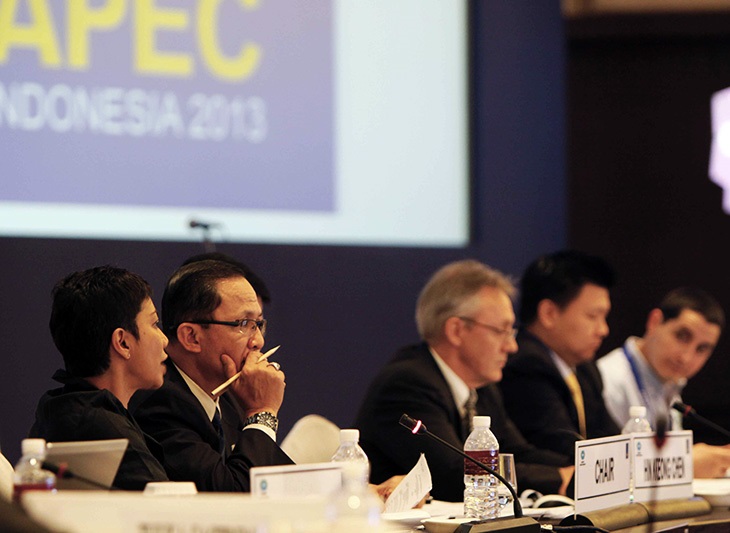APEC pursuing public-private cooperation to fight forest crime

APEC member economies are stepping up engagement with the private sector to combat illegal logging and associated trade, and promote trade in legal forest products.
Forest management officials charted paths towards greater industry sustainability, together with representatives from business and conservation and development bodies, during a public-private dialogue on Tuesday in Medan.
“Trade in forest products is an important source of income and growth within many economies in the region,” said Prof Dr Abdul Rahman, Chair of the APEC Experts Group on Illegal Logging and Associated Trade. “Illegal timber production and processing, and the consumption of these products, undermine the sector and put the environment at great risk.”
“Keeping legal producers on an even playing field is critical to ensuring the future of the world’s forests and the trade they support,” Rahman explained. “Robust engagement between governments and the private sector can help to identify lasting, market-based solutions.”
APEC economies together account for over half of the world’s forests, 60 percent of global production of forest products, and 80 percent of global trade in forest products, according to the United Nations Food and Agriculture Organization. The region’s forest product trade was valued at more than USD150 billion in 2010.
“There is considerable demand for our products,” said Budi Hermawan of PT Kayu Lapis Indonesia, a certified producer of legal timber. The company uses a barcode tracking system, developed by the Indonesian Ministry of Forestry, to report timber production data, he noted. This accounts for individual log identity, including the species, diameter, length and associated legal documentation from the harvesting area to the factory.
“Initiatives that promote legal timber trade, including bans on illegally logged products in consumer markets, are needed by the industry,” Hermawan said. “But the growing web of rules and regulations can be confusing for exporters and importers, and threaten to undermine the potential benefits.”
APEC economies are pursuing greater cohesion through the exchange of information on legal and regulatory issues. They sought views from non-governmental organizations which endorsed this approach.
“Coordinated efforts to prohibit trade in illegally harvested timber and expand legal verification systems are vital to ensuring that illegal products rejected in one market aren’t simply sent to another,” said Andrew Ingles, Chief Technical Advisor for the Responsible Asia Forestry and Trade Program. “As legality standards and verification systems are rolled out across the region, there will also be a need for enhanced capacity for monitoring trade, enforcing national laws and facilitating regional cooperation to fight forest crime.”
“We are already seeing APEC move in the direction of enhanced regional cooperation to fight forest crime,” Ingles added. “This paves the way for the development of protocols to share information across borders, greater coordination of international law enforcement actions and the building of capacity to increase standardization in forest product trade policy.”
APEC forest management officials will meet with anti-corruption and transparency experts from the region on Wednesday, followed by their own separate gathering on Thursday here in Medan.
# # #
For more information or to arrange possible interview opportunities, please contact David Hendrickson +65 9137 3886 at [email protected] or Michael Chapnick +65 9647 4847 at [email protected].
Additional details about APEC meetings, events, projects and publications can be found at www.apec.org. You can also follow APEC on Twitter and join us on Facebook.

